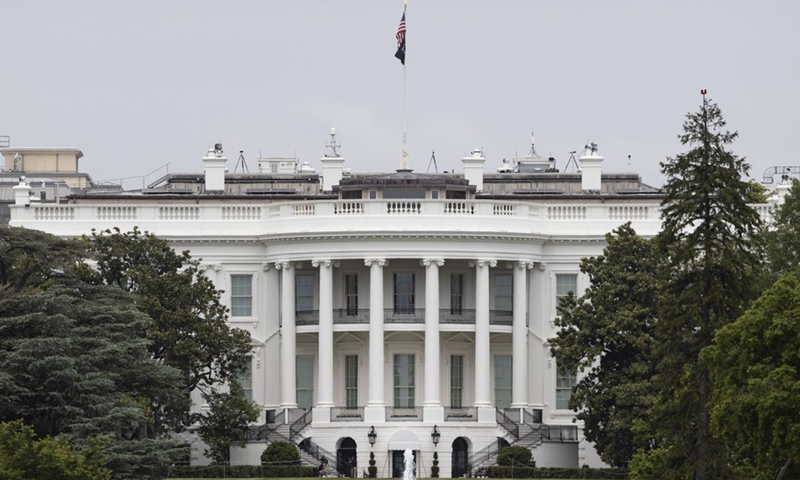US House passes 900-bln-USD COVID-19 relief package
Source: Xinhua Published: 2020/12/22 14:03:31

The White House is seen in Washington D.C., the United States, on May 21, 2020.Photo:Xinhua
US House of Representatives passed a 900-billion-USD COVID-19 relief package late Monday, sending the bill to the Senate.
The long-delayed relief package was approved by the lower chamber along with 1.4-trillion-dollar government funding for the rest of the fiscal year, which ends on Sept. 30, 2021.
The 900-billion-dollar relief plan includes another round of direct payments for individuals, federal unemployment benefits, and more funding for Paycheck Protection Program to support small businesses. It also features hundreds of billions more for schools, testing and the distribution of vaccines.
The House vote came after Democratic and Republican lawmakers reached a deal on Sunday, following months of deadlock over the size and scope of the next round of relief package.
In order to reach an agreement, both parties agreed to drop their key demands: more aid to state and local governments, sought by Democrats, and liability protections for businesses, sought by Republicans. These have been key sticking points in the marathon negotiations.
Some lawmakers complained that they only have a few hours to read the 5,000-plus-page government funding/COVID-19 relief bill before casting their votes, and accused party leaders of ramming the bill through Congress.
"Instead of getting COVID relief out to people months ago we are being forced to vote on this monstrosity without having any meaningful time to go through it. This. Is. Insane," Kelly Armstrong, Republican congressman from North Dakota, tweeted Monday afternoon.
Echoing his remarks, Alexandria Ocasio-Cortez, a New York Democrat, said on Twitter that "this isn't governance. It's hostage-taking."
For Democrats, the 900-billion-dollar relief package is much smaller than the 3.4-trillion-dollar package they passed in the House in May, and down from the 2.2-trillion-dollar proposal they offered in October.
Some Senate Republicans, however, insisted on a relief package below 1 trillion dollars, and had pushed for a 500-billion-dollar bill before the election.
Posted in: AMERICAS